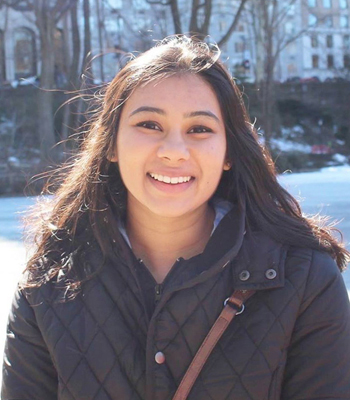 Interview with Alisha Patel
Interview with Alisha Patel
UCSD Psychology BS ’18 with Specialization in Clinical Psychology, attending Clinical Psychology PsyD Program, Roosevelt University
1. What did applying to graduate school involve?
Applying to graduate school involves first deciding on the type(s) of programs you'd like to be a part of. Then, coming up with a realistic list of schools to apply to. Then figuring out when the applications open and the deadlines. Requesting letters of recommendation from professors or mentors. Writing personal statements/letters of intent. Then, once you receive interview invitations, preparing for those and attending them.
2. Can you provide a general timeline of how the application process went?
I started researching schools during my junior year to see what the prerequisite classes were for various programs and to ensure that I would be able to take them if I hadn't already. I began my actual application process in late summer/early fall 2017. It began by finding out when the applications opened and the deadlines for each. During late summer I also contacted my recommenders to see if they would be willing to write me letters of recommendation. I then began my personal statements once the applications opened until I was finished with them/the deadlines. I finished with my applications at the end of fall 2017. I started getting invited to interviews in Winter 2018 and went to the interviews that quarter as well. Also, of course taking the GRE in advance. I took it once in January 2017 and again in July 2017.
3. Were there any resources that you relied on that were especially helpful in the application process? Were there any persons that helped you especially?
The Insider's Guide to Graduate Programs in Clinical Psychology book was very helpful in deciding which programs to apply to. Laura Buffardi [professional psychology admissions consultant] was a great resource for me. She helped me with interview prep, editing my CVs, and also helping me with my personal statements.
4. Did you have to be interviewed, and if so, what were the interviews like?
Yes, I was interviewed for each program that I was accepted to. The interviews are typically 4-7 hours. There is usually a program overview, q&a session, interviews with faculty members, interviews with students or time to ask them questions, and a campus tour. Questions are pretty typical of any job interview... (why are you interested in this program, what are your experiences, etc.)
5. Did you have to take any additional classes beyond those required for your major, in order to qualify for the programs you applied to?
I did have to take some additional classes. Typical requirements for PsyD. programs are Developmental Psychology, Introduction to Psychology, Abnormal/Clinical Psychology, Theories of Personality, Statistics, Research Methods, History and Systems of Psychology. The only ones that weren't available at UCSD was Theories of Personality.
6. Are there any other tips that you would offer to students that are considering applying for the same programs that you applied (and were accepted) to?
My best advice is to start as early as possible and really be as organized as you can. I wanted to give myself ample time to apply because I knew that I would also be juggling classes at UCSD, extracurriculars, etc. I had multiple spreadsheets to stay organized as well. Find what works for you and be consistent about it so that all the information is clear because there is a lot of info to be aware of.
7. What would you attribute your success in graduate applications to?
My success is probably just a combination of a lot of things... having a pretty high GPA, being involved on and off campus, some clinical experience, research experience. And also having help in preparing for interviews and with my personal statements. Also having good people to write you letters of recommendation is really important (strong letters and also people you can count on to submit the letters on time).